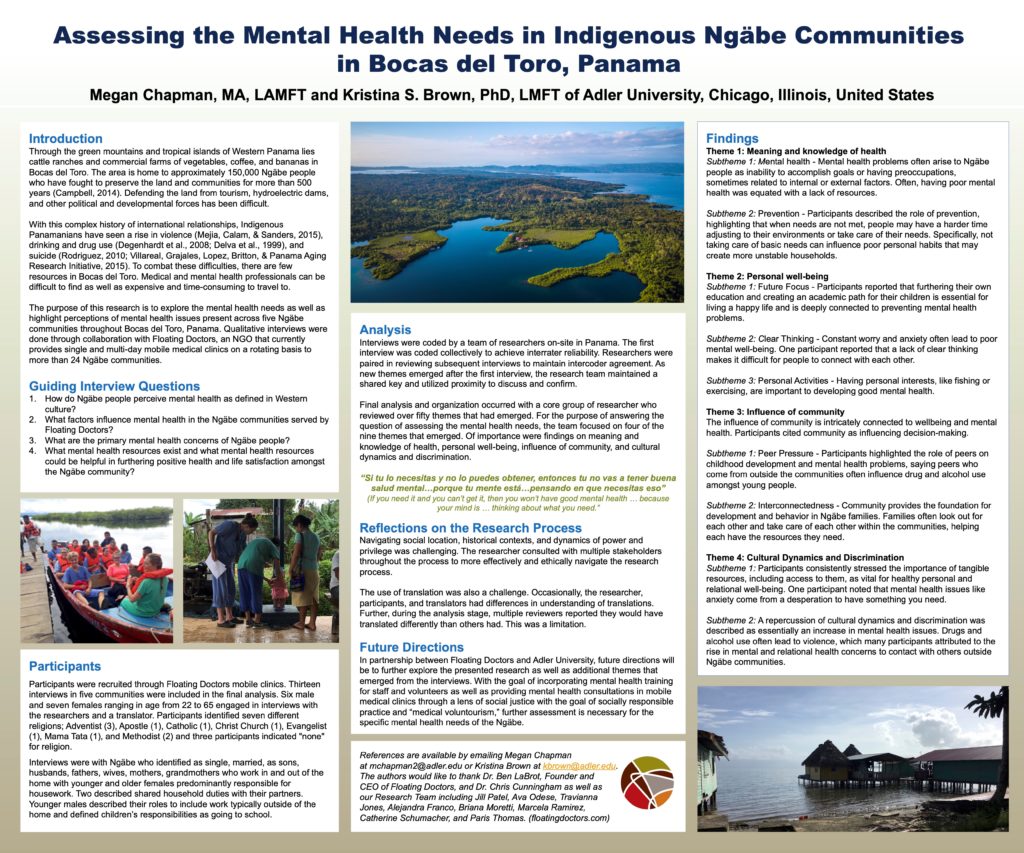Presenters
Summary
Western Panama is home to the Ngäbe-Bugle, the largest group of Indigenous Panamanians making up 6.7% (del Rosario, 2011) of the total population of Panama. Several social, legal, and political challenges have placed Panama in a complex economic and social climate. Amongst those challenges is mental health concerns, particularly violence amongst men, suicide, and excessive drug and alcohol use. This qualitative study explored the needs, knowledge, and beliefs about mental health as defined in Western culture amongst the Ngäbe of Western Panama. Participants were recruited from 9 Ngäbe communities where Floating Doctors holds clinics by word of mouth and snowball sampling. With the assistance of a native Spanish-speaking translator, interviews took place in semi-private areas throughout the communities. Consent forms were translated using a certified translation service. Interviews were recorded, transcribed, and double-checked for translation discrepancies. Data was then coded by 5 students, and themes were determined by the researcher. This research revealed the impact of structural violence in Indigenous communities that may contribute to an increase in exposure and usage of drugs and alcohol and dependence on violence to maintain various structures of social power.
Objectives
- Identify mental health concerns of Ngäbe people in 9 communities.
- Describe perceptions of mental health in 9 Ngäbe communities.
- List potential resources that may further positive health and life satisfaction amongst Ngäbe people.


Leave a Reply